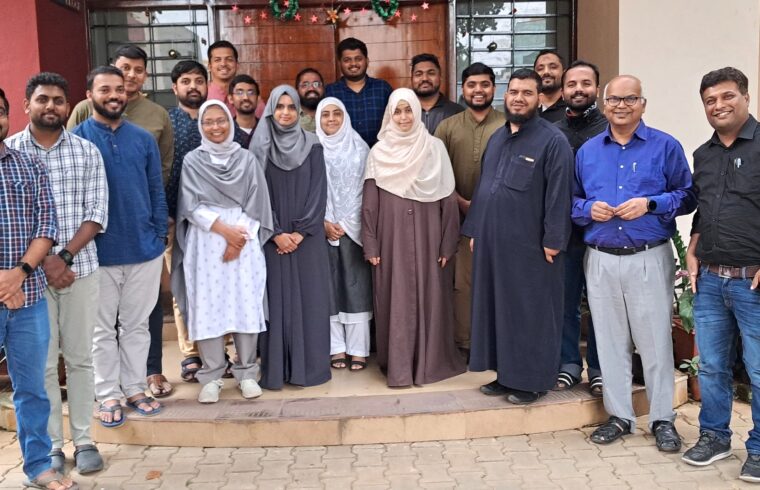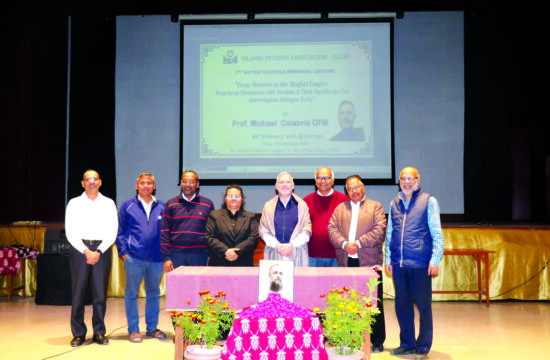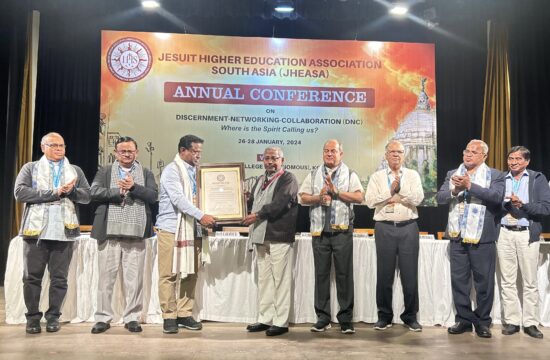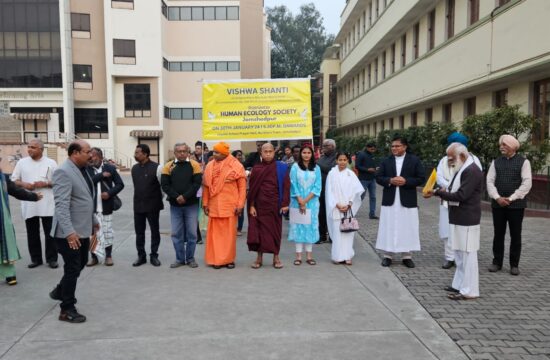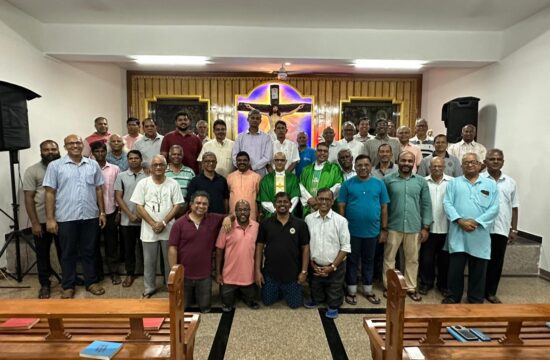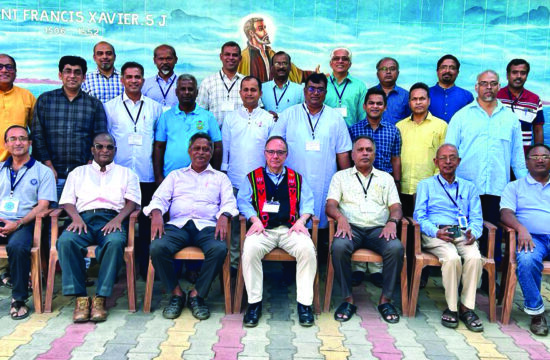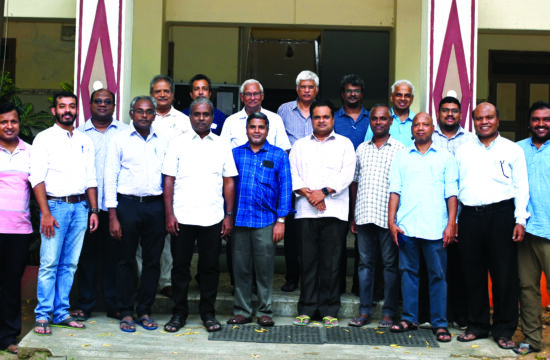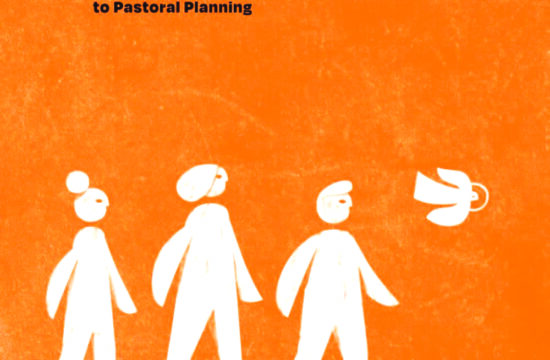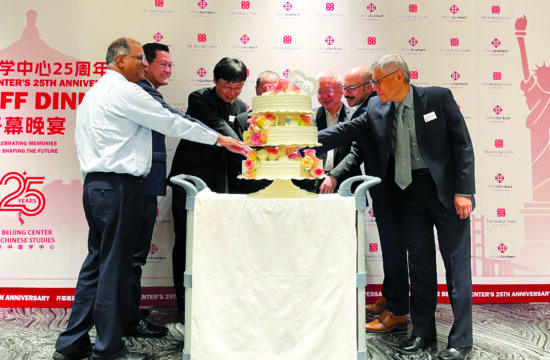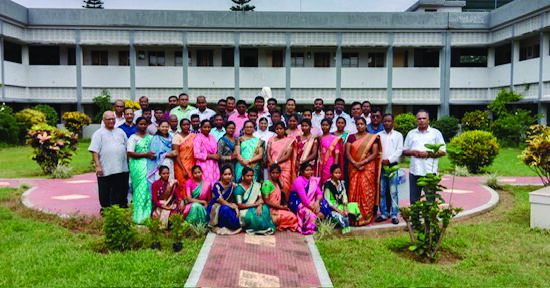Fatima Sarah and a team of Muslim brothers and sisters from the Bangalore Chapter of the Centre for Peace and Spirituality (CPS) came to the Jesuit Formation Centre for Theology (JFCT) in Bangalore for a theological conversation with Jesuit students on the 4 January 2024.
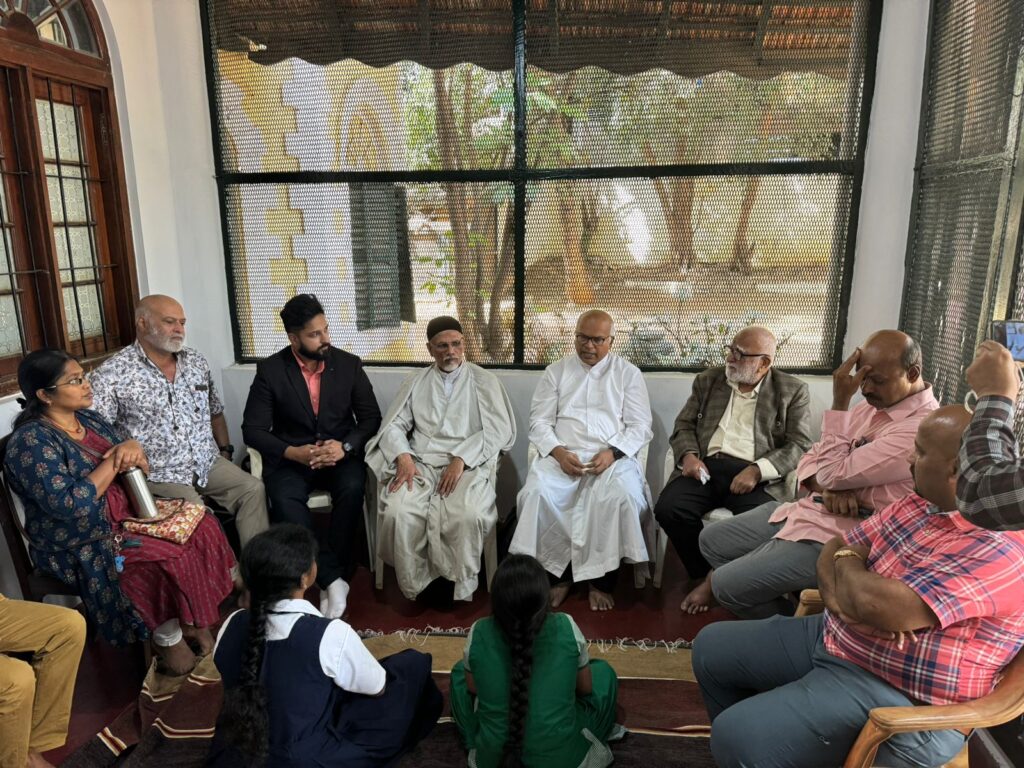
Joseph Victor Edwin SJ, the course instructor, introduced Sarah and her team as Muslim missionaries and said that they were here to bear witness to their faith and to engage with Christian brothers and sisters. Their mission (dawa) is to call people to submit to God by surrendering themselves to the will of God. Prophet Muhammad, peace be upon him, was given this mission ‘to call the people to submit to God’ and ‘to establish a community (umma) of those who have submitted to God and who have thereby become an effective bearer of dawa for all time to come’.
Sarah pointed out that after the finality of prophethood, Muslims were to carry out this mission on behalf of the Prophet by imitating what he did during his life. She said that “to carry out this task correctly, it is imperative to awaken the missionary consciousness within Muslims. They must be informed that the relationship between Muslims and other nations is that of the caller and the called, not of one nation against another”.
Edwin pointed out what Prof. Christian W. Troll SJ, had told him once. Historically the umma had gone beyond this mission of invitation to submit to God. It became politically active and began giving an ultimatum to others by saying: “Accept Islam or submit to Muslim authorities by paying jazia [a special tax for non-Muslims]. Otherwise, be ready for battle”. It is not uncommon to find the traces of such past practices in some groups of Muslims even in our own times.
Sarah pointed out that Muslims should earnestly pray to God almighty that they would fulfil their missionary responsibility as mandated to them by the Prophet Muhammad, peace be upon him.
Edwin said that it was wonderful to meet missionaries of other religious traditions as we Christians know the centrality of mission in our lives by ‘bearing witness to the Risen Lord and to the coming of the Holy Spirit’.
Sarah pointed out the rationale for submitting to God was to proclaim the plan that God had in creating the world. She noted that God created human beings with an innate desire for eternal happiness. We will find this happiness in Paradise where we will be free from all limitations, difficulties, fear and pain and free from any kind of imperfection. As imperfect human beings, we cannot enter the Garden of eternal life before becoming perfect by undergoing many tests and trials. The world is a place where we would be tested. God has placed all of us in this imperfect world to bear witness to God, to follow God’s commandments and to experience tests and trials, thereby preparing ourselves for the Final Judgement. We must remain steadfast during these trials by trusting in God and obeying God’s will. In this way, human beings will prepare themselves to stand before God, trusting in God’s mercy (Qur’an 6. 54) and hoping for the reward of eternal happiness.
Edwin pointed out that, in the light of the explanation given by Sarah, Christians can notice a profound difference in the way that Christians understand ‘eternal happiness’. The Church teaches that God, in His goodness and wisdom, has revealed Himself to us through Jesus Christ, who is the Word made flesh. Jesus Christ has taught us that we can all enter into a relationship with God, the Father through the Holy Spirit and that we can receive a share in Divine Life (cf. D.V., no. 2). Clarity on such profound differences was necessary for any sincere dialogue to take place, he said.
In conclusion, it was pointed out that differences need not become sources for conflict but could lead to mutual enrichment.
– Joseph Victor Edwin, SJ (DEL)


